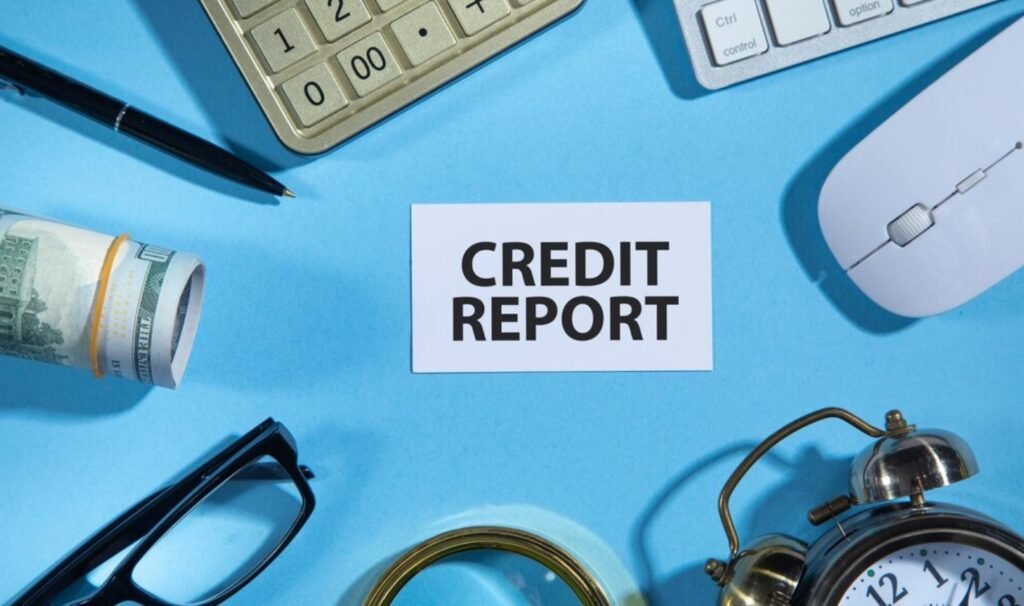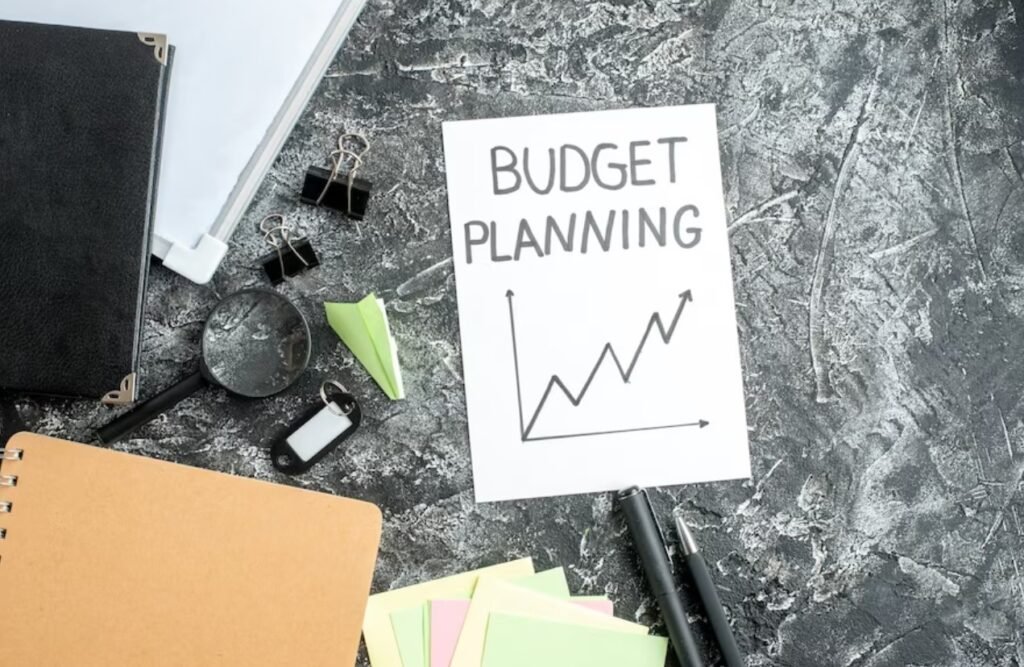Your credit score is more than just a number. It can be the difference between being approved for a mortgage, receiving a lower interest rate on a loan, or even getting a job. Yet, despite its importance, many people are not fully educated on how to manage their credit score or debt effectively. The good news is that it’s never too late to take control of your financial future. In this post, we’ll cover the strategies and mindset needed to master your credit and debt, so you can achieve financial success and freedom. Whether you’re looking to improve your credit score, lower your debt, or simply gain a better understanding of personal finance, this post is for you. By the end of it, you’ll have the tools and knowledge necessary to become a credit master. Let’s dive in!

Read more : Maximizing Your Tax Returns: Tips and Tricks for Tax Planning
Understanding Your Credit Score: Everything You Need to Know
Credit scores are a vital aspect of your financial wellness. It determines your creditworthiness when seeking loans, mortgages, credit cards, or any other lending services. A credit score is a three-digit number ranging from 300 to 850 that represents an individual’s creditworthiness. A higher credit score indicates a lower risk of defaulting on loans, while a lower score suggests a higher risk.
How Credit Scores Are Calculated
Credit scores are calculated differently by the three major credit bureaus: TransUnion, Experian, and Equifax. They all use similar formulas that take into account factors like payment history, credit utilization, length of credit history, credit mix, and new credit. By using these variables, the credit score models calculate each factor’s weight to reach your final score.
Payment history, which refers to missing or late payments, carries the most weight, accounting for 35% of your credit score. Credit utilization follows closely, accounting for 30% of the score. Length of credit history, new credit, and credit mix, each make up the remaining 35%.
Factors That Affect Credit Score
Several factors can affect your credit score, including:
Payment History: Payment history is critical, and late payments, defaults, or bankruptcies have a significant impact on credit scores.

Credit Utilization: How much credit you’re using compared to how much credit you have available also affects your credit score.
Length of Credit History: The age of your credit accounts and how long it’s been since you’ve used them matters in your score calculation.
New Credit: The amount of new credit you’ve applied for recently, determines your creditworthiness.
Credit Mix: Having a mix of different types of credit, such as loans and credit cards, shows lenders that you can handle different types of borrowing.
Read more : Breaking Free from Debt: Credit and Debt Management Strategies
Tips on How to Obtain and Monitor Your Credit Score
There are several ways to obtain and monitor your credit score, including:
Get Your Free Credit Report Annually: By law, everyone is entitled to a free credit report from each of the three major credit bureaus annually.
Monitor Your Credit Score: There are various ways to monitor your credit score, including website subscriptions or apps.
Pay Bills on Time: Always try to pay your bills on time.
Keep Credit Utilization Below 30%: Keep balances on credit cards and loans below 30% of your total available credit.
Keep Old Credit Accounts Open: Keep the accounts you’ve had for a long time open and active to build up credit history.
Understanding your credit score is essential for financial wellness. By understanding how credit scores are calculated, what factors affect them, and how to obtain, monitor and improve them, you can achieve a better financial outcome, higher credit limits, and access to the best lending services.

Tips to Improve Your Credit Score
Your credit score is a vital component of your financial health, as it affects your ability to obtain loans, credit cards, and other financial products. A good credit score can save you thousands of dollars in interest payments over time, while a poor credit score can make it difficult for you to achieve your financial goals. Here are some actionable tips to raise your credit score:
Know Your Credit Score: The first step in improving your credit score is to know where you stand. You can request a free copy of your credit report annually from the three major credit bureaus – Equifax, Experian, and TransUnion. Review your credit report thoroughly and check for inaccuracies or errors that may be dragging down your score.
Pay Bills on Time: Late payments can have a significant impact on your credit score. One of the best ways to improve your score is to pay your bills on time every month. Set up automatic payments or calendar reminders to ensure you don’t miss a due date.
Keep Credit Card Balances Low: High credit card balances can negatively impact your credit score. Aim to keep your credit card balances below 30% of your credit limit. For example, if your credit limit is $10,000, aim to keep your debt below $3,000.
Don’t Close Old Credit Accounts: The length of your credit history is a crucial factor in your credit score. Keeping old credit accounts open can improve the average age of your credit history, which can positively impact your score.
Use Different Types of Credit: A mix of credit types, such as credit cards, personal loans, and an installment loan, can positively impact your credit score. However, avoid taking out too many loans or credit cards at once, as this can negatively impact your score.
Good Credit Habits to Maintain a Healthy Credit Score
Maintaining good credit habits is essential to keep your credit score healthy in the long run. Here are some good credit habits to follow:
Check Your Credit Report Annually: Regularly checking your credit report can help you catch errors early and prevent fraudulent activity.
Don’t Apply for Too Much Credit: Every time you apply for credit, it can impact your credit score. Apply for credit only when you need it, and don’t apply for multiple accounts at once.

Keep Track of Your Credit Card Balances: Monitoring your credit card balances can help you avoid overspending and ensure that you’re not putting too much credit card debt on your credit report.
Use Credit Cards Responsibly: Only charge what you can afford to pay off each month, and avoid carrying balances from month-to-month.
Disputing Errors on a Credit Report
Sometimes, errors may appear on your credit report that can negatively impact your credit score. If you notice an error on your report, you can dispute it by following these steps:
Contact the Credit Reporting Agency: You should contact the credit reporting agency that issued the report with the error. Each agency has a different process for disputing errors, so be sure to follow their guidelines.
Provide Proof of the Error: Gather any relevant documents, such as payment receipts or bank statements, that can prove that the error is false.
Allow Time for a Response: The credit reporting agency has 30 days to respond to your dispute. If they find an error, they will correct it and issue a new credit report. If they can’t verify your claim, they will let you know.
Improving your credit score is a long-term process that requires patience and dedication. However, by following these tips, maintaining good credit habits, and disputing errors on your credit report, you can take steps towards achieving a healthy credit score.
Read more : Risk vs. Reward: Navigating the World of Real Estate Investing
Managing Debt
Debt can be a daunting challenge, especially if it accumulates over time. Managing debt effectively is essential to avoid financial stress and get rid of it as soon as possible. In this article, we will discuss some useful tips on how to manage debt.
Creating a Budget:
The first step in managing debt is to create a budget. A budget will help you understand your monthly expenses, prioritize spending, identify areas where you can save money, and allocate funds for debt repayment. Make a list of all your monthly expenses, including rent/mortgage, utilities, groceries, transportation, and entertainment. Compare your monthly income with your expenses and adjust accordingly.

Reducing Interest Rates and Fees:
High-interest rates and fees often make it difficult to pay off outstanding balances. To reduce the amount owed, consider negotiating with creditors for lower interest rates or a payment plan that suits your budget. You can also transfer balances to zero-interest credit cards or consolidate debts through a personal loan.
Making Timely Payments:
Paying your debts on time is crucial to avoid penalties and additional fees. Late payments can negatively impact your credit score and make it harder to secure loans or credit in the future. Set up automatic payments or reminders to ensure that you don’t miss payment deadlines.
Consequences of Failing to Pay Off Debt:
If you fail to pay off your debts, your credit score will be negatively affected, making it hard to secure future loans or credit. A debt collection agency may contact you, and creditors may take legal actions such as wage garnishment or bank account seizure to get the money owed.
Benefits of Managing Debt:
Managing debt properly can have several benefits, including reducing financial stress, improving your credit score, and increasing your financial stability. It can also help you save money in the long run by paying off debts faster and avoiding additional interest and fees.
Tips for Managing Debt:
– Prioritize debt repayment based on interest rates and balances
– Make extra payments whenever possible
– Consider debt counseling or financial planning services for assistance
– Avoid impulse purchases and unnecessary expenses that can add to debt
– Use cash instead of credit cards to control spending
Managing debt requires discipline, budgeting, and a willingness to make sacrifices to achieve financial freedom. By following these tips and creating a debt management plan, you can take control of your finances and achieve your financial goals.
Other Factors that Affect Your Credit Score
Your credit score is a crucial aspect of your financial well-being. A credit score is a numerical expression derived from a person’s credit report and ranges from 300 to 850. It’s an indicator of your creditworthiness and is used by lenders to determine whether you qualify for a loan and the rate at which they will lend to you. Although payment history, credit utilization, and length of credit history are the most significant factors that affect your credit score, other factors can also impact it.
Credit Inquiries
A credit inquiry is a request made by a lender to retrieve your credit report. When you apply for a loan or a credit card, a lender can make an inquiry to review your credit history. A hard inquiry happens when you apply for new credit, and it can negatively impact your credit score. However, a soft inquiry occurs when you check your own credit report or when a lender reviews it for marketing purposes, and it does not affect your score.
Defaulting on Loans
Defaulting on a loan means that you have failed to make payments on your loan as agreed upon. This can negatively impact your credit score and make it more challenging for you to obtain credit in the future. The severity of the impact depends on how long you have been delinquent, the amount owed, and how recently the default occurred.
Loan to Debt Ratio
The loan to debt ratio refers to the amount of debt you have relative to the credit available to you. It is calculated by dividing the total amount of debt that you owe by the amount of credit available to you. A high loan to debt ratio can indicate that you are overextending yourself financially and can negatively impact your credit score.

Types of Credit
The type of credit you have can also impact your credit score. There are two types of credit: installment credit and revolving credit. Installment credit includes loans that require a set number of payments over a fixed period, such as car loans and mortgages. Revolving credit includes credit cards where the balance can carry over from one month to the next. Having a mix of both types of credit can indicate that you are responsible with your credit and can impact your credit score positively.
Understanding the factors that impact your credit score can help you make informed decisions about your finances. By monitoring your credit score and taking steps to address any issues, you can improve your creditworthiness and achieve your financial goals.
Conclusion
Mastering your credit and debt management skills is essential to your financial well-being. Your credit score is an influential factor in many aspects of your life, from renting an apartment to obtaining a loan for a new car. Therefore, taking the necessary steps to improve it and manage your debt effectively will go a long way in ensuring a stable and prosperous financial future. Remember that every positive move towards credit mastery, no matter how small, can make a significant impact in the long run. So start today by implementing the tips discussed in this article and watch your credit score soar!
FAQ – How to Improve Your Credit Score and Manage Debt
1. What is a credit score, and how does it affect my finances?
Your credit score is a three-digit number that reflects your creditworthiness. Lenders use it to determine the terms of loans and credit cards. A lower score means higher interest rates and less favorable loan terms.
2. Can I improve my credit score quickly?
Improving your credit score takes time and effort. There are no quick fixes. It’s often a matter of consistently paying bills on time, reducing debt, and avoiding new credit inquiries.
3. How much debt is too much?
It depends on your income, expenses, and financial goals. Generally, if your debt-to-income ratio exceeds 50%, it’s a sign that you’re overextended.
4. What are some strategies for paying off debt?
One popular strategy is the debt snowball method, which involves paying off the smallest debts first and rolling those payments into larger debts. Another is the debt avalanche method, which focuses on paying down debts with the highest interest rates first.
5. Should I close unused credit cards?
It depends on your credit utilization ratio. If you have high balances on your active cards, closing unused cards could increase your ratio and hurt your credit score.
6. What is a secured credit card?
A secured credit card is one that requires a security deposit to establish a line of credit. These cards are often used by those with poor credit to rebuild their credit history.
7. Can I dispute errors on my credit report?
Yes, you have the right to dispute errors on your credit report. You can contact the credit reporting agencies or the creditor directly to do so.
8. How long do negative items stay on my credit report?
Most negative items, such as missed payments or collections, stay on your credit report for seven years.
9. What is a credit counseling agency?
A credit counseling agency is a nonprofit organization that can help you manage your debts and develop a budget. They may also offer debt management plans and financial education.
10. How can I maintain good credit habits in the long term?
Maintaining good credit habits involves staying on top of your finances and continuing to practice positive behaviors such as paying bills on time, keeping debt low, and regularly checking your credit reports.
